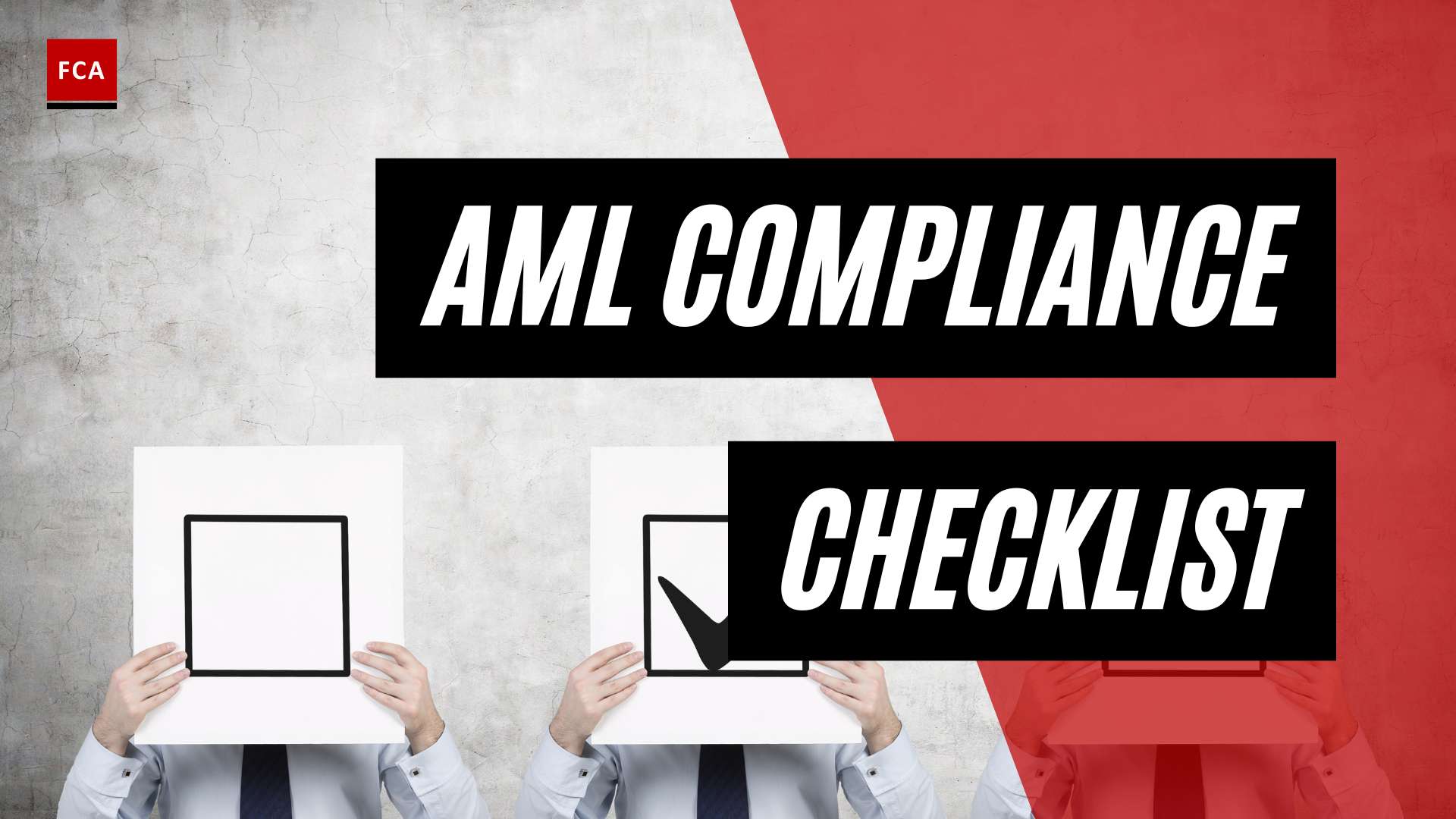AML Regulations for Fintech Companies
As fintech companies continue to innovate and reshape the financial industry, they also face unique challenges in complying with Anti-Money Laundering (AML) regulations. The complex nature of their business operations, which often involve advanced technology, vast customer databases, cross-border transactions, and online platforms offering multiple financial services, contributes to these challenges (Shufti Pro).
Challenges of AML Compliance for Fintech Companies
Fintech companies encounter several challenges when it comes to AML compliance. These challenges include:
-
Cost and Time Implications: Compliance costs for AML regulations have significantly increased for fintech firms, with an average annual cost of $11.45 million. These costs stem from the need to implement robust AML programs, conduct extensive customer due diligence, and invest in compliance technologies (Shufti Pro). Additionally, the onboarding process for customers has become more time-consuming, averaging 32 days due to stringent AML checks and assessments.
-
Regulatory Uncertainty and Jurisdictional Variations: AML compliance for fintech companies is further complicated by the lack of standardized policies and procedures across different jurisdictions. Varying regulations and requirements make it challenging for fintech companies operating in multiple countries to navigate compliance obligations. This regulatory uncertainty increases the potential for non-compliance penalties and adds complexity to maintaining effective AML programs (Shufti Pro).
Cost and Time Implications of AML Compliance
| Challenge | Description |
|---|---|
| Cost Implications | Compliance costs for AML regulations have increased to an average of $11.45 million annually for fintech firms. |
| Time Implications | Onboarding times for customers have grown to an average of 32 days due to stringent AML checks and assessments. |
Data from Shufti Pro
Regulatory Uncertainty and Jurisdictional Variations
The lack of standardized AML policies and procedures across different jurisdictions adds to the complexity of AML compliance for fintech companies. These variations in regulations make it challenging for fintech firms operating globally to ensure consistent compliance. It is crucial for fintech companies to stay updated with the AML regulations of the jurisdictions in which they operate and establish robust compliance programs that address the specific requirements of each jurisdiction.
The emergence of innovative technologies, such as cryptocurrencies and blockchain, further complicates AML compliance efforts for fintech companies. These technologies present unique challenges in terms of tracking transactions and verifying the identities of users in accordance with AML regulations. Fintech companies must develop strategies to address these challenges and ensure compliance with AML regulations while leveraging the benefits of these technologies.
To navigate these challenges, fintech companies are increasingly turning to Regulatory Technology (RegTech) solutions. These AI-powered AML compliance tools help streamline operations, enhance efficiency, and ensure compliance with evolving AML regulations in the fast-paced financial landscape.
In the next sections, we will explore emerging trends in AML and fintech innovations, as well as strategies that fintech companies can adopt to enhance AML compliance and navigate regulatory complexities.
Emerging Trends in AML and Fintech Innovations
As the fintech industry continues to evolve, it is essential to stay updated on the emerging trends in Anti-Money Laundering (AML) compliance. Two significant trends in this space are the impact of cryptocurrencies and blockchain technology, as well as the role of RegTech in AML compliance.
Impact of Cryptocurrencies and Blockchain Technology
The rise in the use of cryptocurrencies and blockchain technology in fintech operations has introduced new challenges in AML compliance. These innovative technologies present unique difficulties in terms of tracking transactions and verifying the identities of users in accordance with AML regulations. The decentralized nature of cryptocurrencies and the pseudonymous nature of blockchain transactions make it more challenging to identify suspicious activities and comply with regulatory requirements (Shufti Pro).
To address these challenges, regulatory authorities are working towards developing frameworks and guidelines specific to cryptocurrencies and blockchain technology. Fintech companies operating in this space must stay abreast of the evolving regulatory landscape and implement robust AML controls that align with these advancements. Implementing Know Your Customer (KYC) procedures and transaction monitoring systems tailored to cryptocurrencies can help mitigate the risks associated with money laundering and other illicit activities.
Role of RegTech in AML Compliance
Fintech companies are increasingly turning to Regulatory Technology (RegTech) solutions to streamline their operations, enhance efficiency, and ensure compliance with evolving AML regulations in the rapidly changing financial landscape. RegTech utilizes advanced technologies such as artificial intelligence (AI), machine learning, and data analytics to automate AML compliance processes and enhance the effectiveness of risk management systems.
AI-powered AML compliance tools can help fintech companies detect complex patterns of money laundering and other financial crimes more efficiently. These advanced systems can analyze vast amounts of data, identify suspicious activities, and generate real-time alerts for further investigation. By leveraging RegTech solutions, fintech companies can strengthen their AML frameworks, reduce compliance costs, and improve their overall risk management capabilities (Shufti Pro).
To fully leverage the benefits of RegTech, fintech companies should assess their specific compliance requirements and select appropriate AML compliance software or solutions tailored to their operations. It is essential to choose vendors that offer comprehensive solutions, including transaction monitoring, KYC solutions, and ongoing regulatory updates. By implementing RegTech solutions, fintech companies can navigate the complexities of AML compliance more effectively and ensure a robust risk management framework.
In summary, the impact of cryptocurrencies and blockchain technology, as well as the emergence of RegTech, are significant trends reshaping the AML landscape for fintech companies. Staying informed about these trends and adopting appropriate strategies and technologies is crucial for fintech innovators to ensure compliance with AML regulations and maintain a secure and trustworthy financial ecosystem.
Consequences of AML Non-Compliance for Fintech Companies
Ensuring compliance with anti-money laundering (AML) regulations is of paramount importance for fintech companies. Non-compliance with these regulations can have severe consequences, impacting both the financial stability and reputation of these companies. In this section, we will explore the potential consequences of AML non-compliance for fintech companies.
Financial Penalties and Disgorgement of Funds
One of the most immediate and significant consequences of AML non-compliance is the imposition of financial penalties. Regulatory bodies have the authority to impose fines and disgorgement of funds obtained through illicit activities or transactions. These penalties can be substantial, depending on the severity and extent of the non-compliance.
For instance, in 2020, Goldman Sachs was fined $2.9 billion for AML violations related to the 1MDB scandal, highlighting the high cost of non-compliance with AML regulations (Source). These financial penalties can have a significant impact on the profitability and financial stability of fintech companies.
Class-Action Lawsuits and Reputational Damage
Non-compliance with AML regulations can also expose fintech companies to the risk of class-action lawsuits. Shareholders or customers who have been adversely affected by the non-compliance may initiate legal action seeking compensation for damages. These lawsuits can result in substantial financial payouts, further exacerbating the financial burden on the non-compliant fintech companies (Source).
Moreover, non-compliance with AML regulations can lead to irreparable reputational damage. News of non-compliance and associated penalties can tarnish the image of fintech companies, eroding customer trust and confidence. Rebuilding a damaged reputation is a challenging and time-consuming process, and the negative impact can have long-term consequences on the success and growth of the company.
Business Disruptions and License Revocation
In severe cases of AML non-compliance, regulatory bodies may impose business disruptions and even revoke licenses of fintech companies. These disruptions can involve suspending certain business activities until systems and procedures are improved to meet regulatory requirements. This can have a direct impact on the revenue and operations of the fintech companies, leading to financial losses and hindering the achievement of business objectives.
License revocation is a severe outcome of non-compliance, as it prohibits fintech companies from conducting certain regulated activities. This can effectively halt their operations, leading to significant financial losses and potential closure of the business.
It is crucial for fintech companies to prioritize AML compliance to avoid these detrimental consequences. Establishing robust AML programs, conducting thorough risk assessments, and prioritizing customer due diligence are essential strategies to mitigate the risks associated with non-compliance. By proactively addressing AML compliance, fintech companies can safeguard their financial stability, protect their reputation, and continue to thrive in the evolving regulatory landscape.
AML Compliance Strategies for Fintech Companies
To navigate the complex landscape of Anti-Money Laundering (AML) regulations, fintech companies must implement effective compliance strategies. These strategies help establish robust AML programs, conduct proper risk assessments, and prioritize customer due diligence.
Establishing Comprehensive AML Programs
Fintech companies need to establish AML programs that include comprehensive policies, procedures, and internal controls to counter money laundering activities and fraudulent financial transactions. These programs should be tailored to the specific risks associated with their business models and the jurisdictions they operate in. Key components of a comprehensive AML program may include:
-
Know Your Customer (KYC) Procedures: Conducting thorough customer due diligence to verify the identity of customers and assess their risk levels. This involves gathering relevant information, such as identification documents and beneficial ownership details, and performing ongoing monitoring of customer activities.
-
Transaction Monitoring: Implementing robust monitoring systems to detect suspicious transactions and activities. Fintech companies can leverage advanced technologies, such as artificial intelligence and machine learning, to analyze large volumes of data and identify patterns indicative of money laundering or other financial crimes.
-
Employee Training: Providing regular training to employees on AML regulations, red flags, and reporting obligations. Employees should be aware of their role in identifying and reporting suspicious activities to the appropriate authorities.
Risk Assessment and Management
Fintech companies should implement robust risk assessment processes to identify and manage the risks associated with money laundering and other financial crimes. A risk-based approach allows companies to allocate resources effectively and focus on high-risk areas. Key steps in risk assessment and management include:
-
Risk Identification: Identifying and assessing the inherent risks associated with the company’s products, services, customers, and geographies. This involves evaluating factors such as transaction volumes, customer profiles, and the complexity of the company’s operations.
-
Risk Mitigation: Implementing risk mitigation measures based on the identified risks. This may involve enhanced due diligence for high-risk customers, implementing transaction monitoring systems, and conducting periodic reviews of existing customer relationships.
-
Ongoing Monitoring and Review: Continuously monitoring and reassessing the effectiveness of risk management measures. Regular reviews ensure that the AML program remains up-to-date and aligned with regulatory changes and emerging risks.
Importance of Customer Due Diligence
Customer due diligence (CDD) is a critical aspect of AML compliance for fintech companies. CDD helps verify the identity of customers, assess their risk levels, and identify any potential money laundering or terrorist financing activities (Sanction Scanner). Key considerations for effective CDD include:
-
Identity Verification: Establishing robust processes to verify the identity of customers, including collecting and verifying identification documents and conducting watchlist screenings. This helps ensure that customers are who they claim to be and are not on any sanction lists.
-
Enhanced Due Diligence: Conducting enhanced due diligence for high-risk customers, such as politically exposed persons (PEPs) or customers from high-risk jurisdictions. This involves gathering additional information about the customer’s source of funds, beneficial ownership, and conducting ongoing monitoring of their transactions.
-
Ongoing Monitoring: Implementing systems to monitor customer transactions on an ongoing basis. This helps identify any suspicious activities or deviations from normal patterns, enabling timely reporting and mitigation of potential risks.
By establishing comprehensive AML programs, conducting thorough risk assessments, and prioritizing customer due diligence, fintech companies can enhance their compliance efforts and mitigate the risks associated with money laundering and financial crimes. To learn more about AML compliance in the fintech industry, check out our article on fintech solutions for AML compliance.
AML Regulations and the Future of Fintech
As the landscape of financial technology (fintech) continues to evolve, so do the regulations surrounding anti-money laundering (AML) compliance. Understanding the recent regulatory developments in AML is crucial for fintech companies to navigate the changing landscape and ensure compliance. In this section, we will provide an overview of recent AML regulatory developments, discuss the increased enforcement focus on AML and sanctions, and explore the implications for the fintech industry.
Overview of Recent AML Regulatory Developments
In 2023, the Biden administration highlighted national security and the Corporate Transparency Act as significant priorities in the AML space. The administration emphasized investigations and prosecutions in the national security sector, particularly those involving AML and sanctions. The U.S. Department of Justice officials compared sanctions to “the new FCPA” and stressed their relevance across multiple industries. They also emphasized the existence of voluntary self-disclosure incentives and the enforcement under a growing multilateral regime.
U.S. enforcers are increasingly utilizing AML statutes to regulate various behaviors. These statutes can be categorized into those that ban specific behaviors, such as knowingly engaging in financial transactions to hide illegal activities, and those that impose obligations on certain businesses to identify and report suspicious financial activities, such as the Bank Secrecy Act (BSA) (Gibson Dunn). This expansion of regulatory reach underscores the importance of robust AML compliance measures for fintech companies.
Increased Enforcement Focus on AML and Sanctions
The primary focus of AML regulation is on investigating and prosecuting activities related to national security and the implications of AML and sanctions. This focus extends beyond traditional defense sectors to industries like tobacco, cement, and shipping, which have faced enforcement actions for alleged violations. The Biden administration’s emphasis on AML and sanctions enforcement demonstrates a growing multilateral regime and an expanded reach of these regulations across various sectors (Gibson Dunn).
Officials from the U.S. Department of Justice have likened the enforcement of sanctions to the Foreign Corrupt Practices Act (FCPA), highlighting the broad reach of sanctions across multiple industries. This comparison underscores the significance of compliance with AML and sanctions regulations and the potential consequences for non-compliance. Fintech companies must remain vigilant in their AML efforts to mitigate the risk of penalties and reputational damage (Gibson Dunn).
Implications for the Fintech Industry
The recent regulatory developments and increased enforcement focus on AML and sanctions have significant implications for the fintech industry. Fintech companies, including those involved in cryptocurrency and blockchain technology, must adapt their AML compliance strategies to align with the evolving regulatory landscape. Compliance with AML regulations is crucial to maintain trust and credibility in the industry, avoid financial penalties, and safeguard against reputational damage.
To navigate these challenges, fintech companies should prioritize establishing comprehensive AML programs, conducting thorough risk assessments, and implementing effective customer due diligence measures. Embracing regulatory technology (RegTech) solutions can also streamline AML compliance processes and enhance efficiency. Fintech companies must stay updated on the latest AML regulatory developments and proactively adjust their compliance strategies to ensure continued success in an ever-changing regulatory environment.
By staying abreast of the recent AML regulatory developments, fintech companies can proactively address compliance challenges, mitigate risks, and contribute to a robust and secure financial ecosystem. The future of fintech rests on striking a balance between innovation and adherence to AML regulations, ensuring the integrity of financial systems and protecting against illicit activities.








